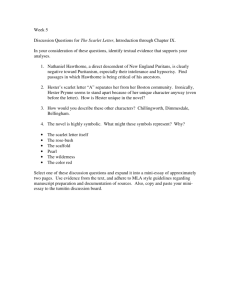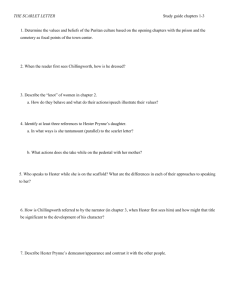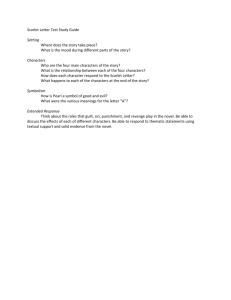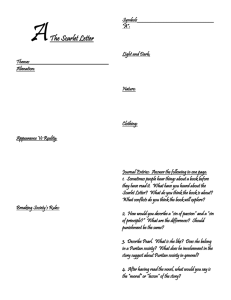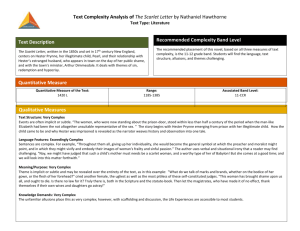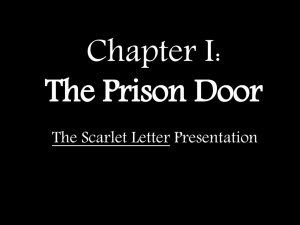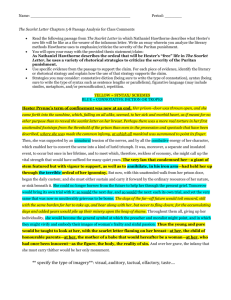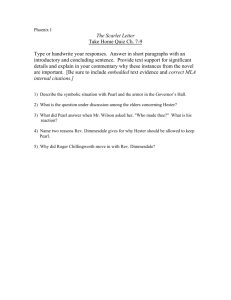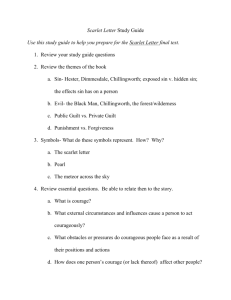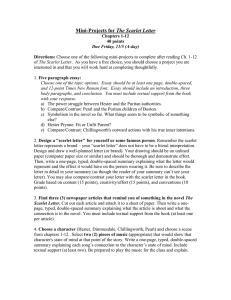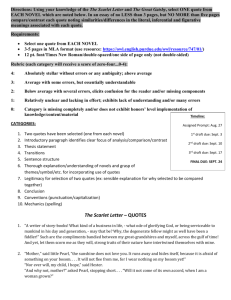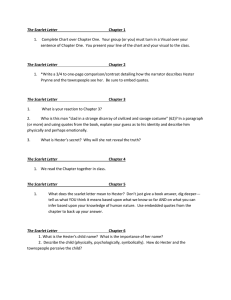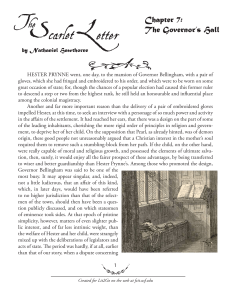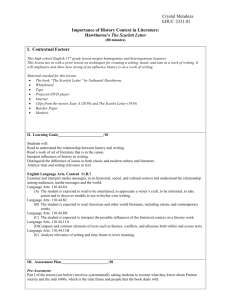Discussion Questions
advertisement
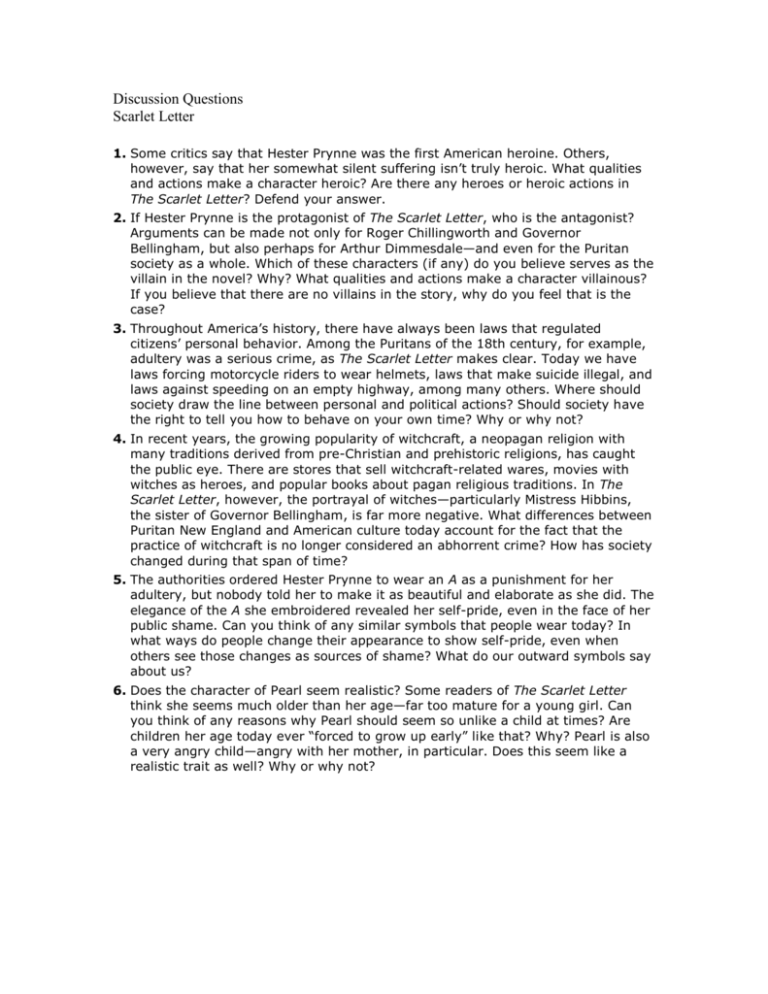
Discussion Questions Scarlet Letter 1. Some critics say that Hester Prynne was the first American heroine. Others, however, say that her somewhat silent suffering isn’t truly heroic. What qualities and actions make a character heroic? Are there any heroes or heroic actions in The Scarlet Letter? Defend your answer. 2. If Hester Prynne is the protagonist of The Scarlet Letter, who is the antagonist? Arguments can be made not only for Roger Chillingworth and Governor Bellingham, but also perhaps for Arthur Dimmesdale—and even for the Puritan society as a whole. Which of these characters (if any) do you believe serves as the villain in the novel? Why? What qualities and actions make a character villainous? If you believe that there are no villains in the story, why do you feel that is the case? 3. Throughout America’s history, there have always been laws that regulated citizens’ personal behavior. Among the Puritans of the 18th century, for example, adultery was a serious crime, as The Scarlet Letter makes clear. Today we have laws forcing motorcycle riders to wear helmets, laws that make suicide illegal, and laws against speeding on an empty highway, among many others. Where should society draw the line between personal and political actions? Should society have the right to tell you how to behave on your own time? Why or why not? 4. In recent years, the growing popularity of witchcraft, a neopagan religion with many traditions derived from pre-Christian and prehistoric religions, has caught the public eye. There are stores that sell witchcraft-related wares, movies with witches as heroes, and popular books about pagan religious traditions. In The Scarlet Letter, however, the portrayal of witches—particularly Mistress Hibbins, the sister of Governor Bellingham, is far more negative. What differences between Puritan New England and American culture today account for the fact that the practice of witchcraft is no longer considered an abhorrent crime? How has society changed during that span of time? 5. The authorities ordered Hester Prynne to wear an A as a punishment for her adultery, but nobody told her to make it as beautiful and elaborate as she did. The elegance of the A she embroidered revealed her self-pride, even in the face of her public shame. Can you think of any similar symbols that people wear today? In what ways do people change their appearance to show self-pride, even when others see those changes as sources of shame? What do our outward symbols say about us? 6. Does the character of Pearl seem realistic? Some readers of The Scarlet Letter think she seems much older than her age—far too mature for a young girl. Can you think of any reasons why Pearl should seem so unlike a child at times? Are children her age today ever “forced to grow up early” like that? Why? Pearl is also a very angry child—angry with her mother, in particular. Does this seem like a realistic trait as well? Why or why not?
